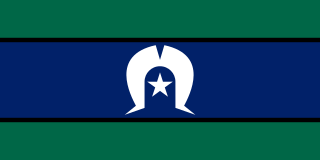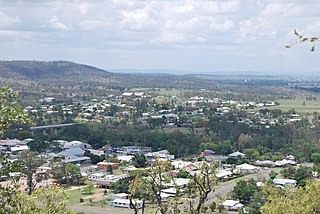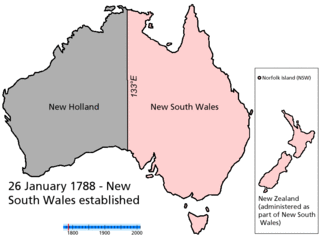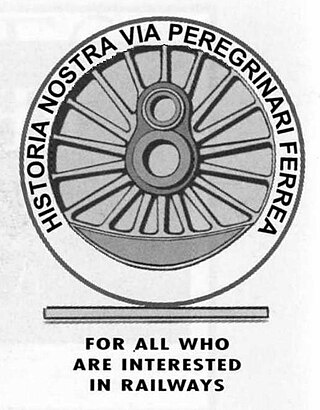
The Australian National Kennel Council is the coordinating kennel club of Australia. It is a member of the Fédération Cynologique Internationale.

The Torres Strait Islands are an archipelago of at least 274 small islands in the Torres Strait, a waterway separating far northern continental Australia's Cape York Peninsula and the island of New Guinea. They span an area of 48,000 km2 (19,000 sq mi), but their total land area is 566 km2 (219 sq mi).

The National Trust of Australia, officially the Australian Council of National Trusts (ACNT), is the Australian national peak body for community-based, non-government non-profit organisations committed to promoting and conserving Australia's Indigenous, natural and historic heritage. The umbrella body was incorporated in 1965, with member organisations in every state and territory of Australia.
Alfred Hermann Traeger, known as Alf Traeger, was an Australian engineer and inventor, chiefly known for the development of the pedal radio used by both the School of the Air and by the Royal Flying Doctor Service.

Gayndah is a town and locality in the North Burnett Region, Queensland, Australia. In the 2016 census, Gayndah had a population of 1,981 people. It is the administrative centre for the North Burnett Region.

There have been numerous proposals for the creation or incorporation of new states of Australia, since the late 19th century. Chapter VI of the Constitution of Australia provides for the admission of new states to the federation. Proposals have included admitting territories to statehood, admitting independent countries, and forming new states from parts of existing states. However, no new states have been added since the federation of six former British self-governing colonies in 1901, as states of the new Commonwealth of Australia.

Newstead House is Brisbane's oldest surviving residence and is located on the Breakfast Creek bank of the Brisbane River, in the northern Brisbane suburb of Newstead, in Queensland, Australia. Built as a small cottage in the Colonial-Georgian style in 1846, the cottage was extended and today is painted and furnished in a late Victorian style.
Royal Western Australian Historical Society has for many decades been the main association for Western Australians to collectively work for adequate understanding and protection of the cultural heritage of Perth and Western Australia.

The Royal Australian Historical Society, formerly Australian Historical Society, is a voluntary organisation founded in Sydney, Australia in 1901 with Andrew Houison as founding president. Its goals are to encourage the study of and interest in Australian history. It has a membership throughout Australia and many of its activities and facilities are funded by contributions from its members and benefactors.
The Royal Historical Society of Victoria is a community organisation promoting the history of the state of Victoria, Australia. It functions to promote and research the history of that state after settlement, and as an umbrella organisation for more than 300 affiliated societies. It is operated by volunteers, and has a claimed membership of 1200.

The Boyne Valley is a rural locality in Gladstone Region, Queensland, Australia. The locality contains four small towns: Nagoorin, Ubobo, Builyan, and Many Peaks. In the 2021 census, Boyne Valley had a population of 301 people.

Many Peaks is a town in Gladstone Region in Queensland, Australia. It is one of four small townships within the locality of Boyne Valley along with Nagoorin, Builyan and Ubobo.

Local history is the study of history in a geographically local context, often concentrating on a relatively small local community. It incorporates cultural and social aspects of history. Local history is not merely national history writ small but a study of past events in a given geographical area which is based on a wide variety of documentary evidence and placed in a comparative context that is both regional and national. Historic plaques are one form of documentation of significant occurrences in the past and oral histories are another.

The Flinders Peak Group is an unnamed range of hills located on the northern edge of the Scenic Rim Region, south west of Logan City and south east of the City of Ipswich in South East Queensland, Australia. The summit in the Range is Flinders Peak reaching 680 metres (2,230 ft) above sea level.
The Royal Historical Society of Queensland (RHSQ) is a historical society founded in Brisbane, Australia in 1913. It promotes the study of Australian history especially that of Queensland and adjacent Pacific islands. It maintains an important collection and catalogue of historical research materials and organises exhibitions of those materials. It organises meetings, lectures and conferences where research is presented and publishes these proceedings and other scholarly papers in its journal and other publications. It works with other historical societies and cultural organisations to advocate on behalf of the sector and to provide leadership and guidance.
The Historical Society of the Northern Territory is a historical society founded in Darwin, Australia in 1964. Major objectives of the Society include (1) the study of the history of the Northern Territory of Australia; (2) encouraging the preservation of the Northern Territory's historical relics and records by their deposit with an appropriate national or local authority, but not with the Society ; (3) promoting lectures, discussions, excursions and exhibitions relating to the history of the Northern Territory; and (4) providing an avenue for publishing on the history of the Northern Territory in the Society's journal or as an occasional paper or book.
Regional Arts Australia is the national peak body for regional arts organisations throughout Australia. Formed in 1966 as the Arts Council of Australia, it is a federation of the peak non-metropolitan community arts organisations in each of the Australian states and territories. It advocates better recognition and support for the regional, rural and remote arts sector in Australia. It initiates and manages projects to support regional artists, artsworkers and communities in arts practice, arts promotion and audience development in the regional and rural sectors.
Joan Kerr (1938–2004) was an Australian academic and cultural preservationist. Initially her interest was sparked in preserving the architectural heritage of Australia, but over time her interests spread to art history and Australian culture in general. She taught at many universities throughout the country and was involved in Historical Societies and Preservation Trusts in a variety of the territories. She wrote books on Australia's historic architecture, feminist artists, cartoonists and her major life work was producing the Dictionary of Australian Artists: Painters, Sketchers, Photographers and Engravers to 1870.
The Military Historical Society of Australia (MHSA) is a voluntary organisation formed in 1957, focused upon promoting research and study of Australia's military history. Administered by a federal council based in the Australian Capital Territory, the society has state and regional branches in all states of Australia, except New South Wales, which split from the organisation in 1968. The society has published a quarterly journal, Sabretache, continuously since mid-1958.











